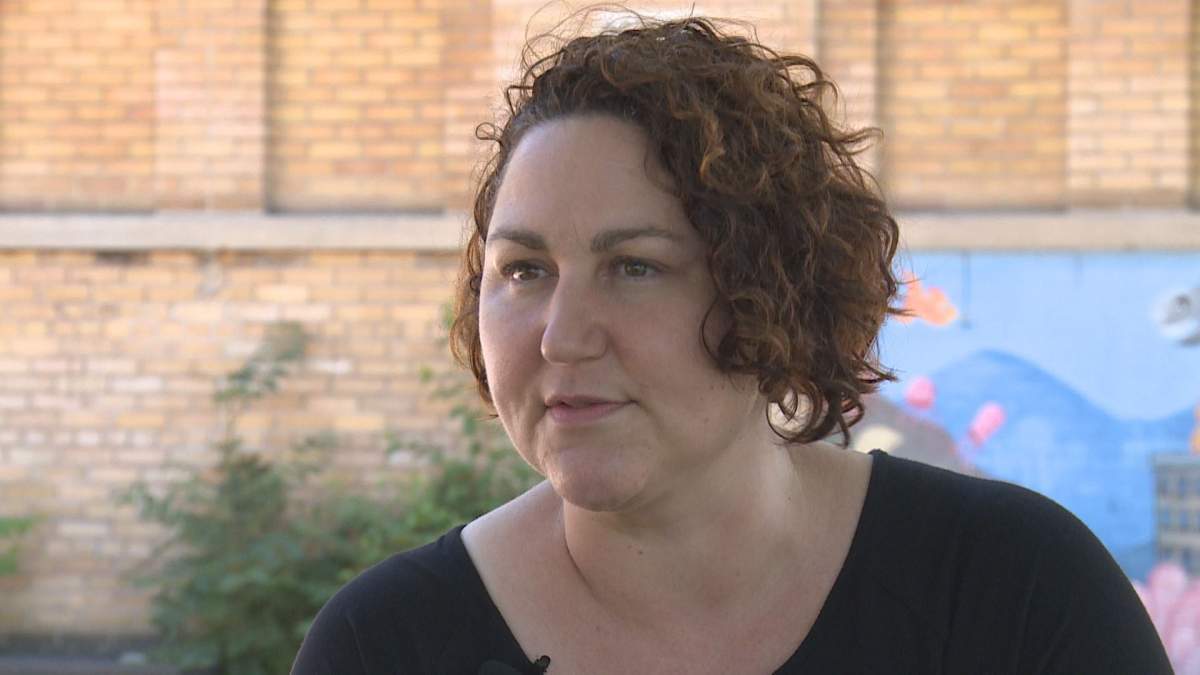Harm reduction advocates demonstrated in Toronto this week, calling on Ontario Premier Doug Ford to back away a decision to “pause” the rollout of safe injection sites across the province.

The advocates say the Ford government is taking the wrong approach to the opioid crisis. The government, for its part, says the “pause” is part of an evidence-based review on whether drug injection sites get users the help they need.
That leaves advocates frustrated. Akia Munga, a harm reduction worker and drug user who says he’s lost 14 people to opioid overdoses in Toronto, is worried more will die. The Ford government’s move to put a ‘pause’ on safe injection sites, he says, puts lives at risk.
Munga is urging the government to lift the moratorium and back the consumption sites.
“Give your head a shake and look at your priorities … Our friends’ blood has been spilled, our friends’ blood is on their hands,” he says.
“There are literally bodies in the morgue. The morgue is overflowing. Go visit a morgue, go visit what you are doing. What are you precipitating? And if you are supposed to really care about the people in this city, don’t you want them alive?”
This week Munga and dozens of advocates protested outside of a national opioid symposium in downtown Toronto.
Gillian Kolla, who also attended the protest, is urging the Ford government to do more.
“It’s been very, very slow to get all levels of government to respond to this crisis and that has been frustrating,” she says.

Get weekly health news
Kolla points to services available in B.C. and says Ontario should follow their lead. “What we could be doing better is rolling out many more harm reduction services for people who need them. We could be rolling out prescription opioid programs. They have models in Vancouver — prescription hydromorphone programs, where people who are dependent on opioids get a supervised dose of medications daily. And this program has been incredibly well studied and shows that people stabilize very very well on it.”
Ontario Health Minister Christine Elliott did not attend the meeting. Her office said Elliott was visiting the Fred Victor Centre, a Toronto charity which helps the homeless.
A statement her office sent to Global News reads, “Minister Elliott is undertaking an evidence-based review, listening to experts, community leaders, community members and individuals who have lived through addiction to ensure that any continuation of drug injection sites introduce people into rehabilitation and ensure those struggling with addiction get the help they need. The Minister expects this review to conclude in short order and will be making a recommendation on how to proceed.”
Sarah Ovens, who helped start the Moss Park “pop up” safe injection site last year, has been working in harm reduction since the crisis began in Ontario.
“It just felt like it was escalating so quickly. We were losing so, so many people and it just felt like nobody was doing anything,” she says.
Ovens points to staggering statistics. “Approximately 4,000 people across Canada died of opioid overdoes last year. That’s twice as many people that died of aids during the height of the AIDS crisis. I think we look back on that with a historical view and people realize that that was a situation of terrible negligence and that more could have been done.”
According to the city of Toronto’s website, in 2017, there were 303 opioid overdose deaths in Toronto. This includes both accidental deaths and suicides combined. This represents a 63 per cent increase in the deaths compared with 2016 and a 121 per cent increase in deaths compared with 2015.
In 2017, one in four opioid overdose deaths in Ontario occurred in Toronto.










Comments